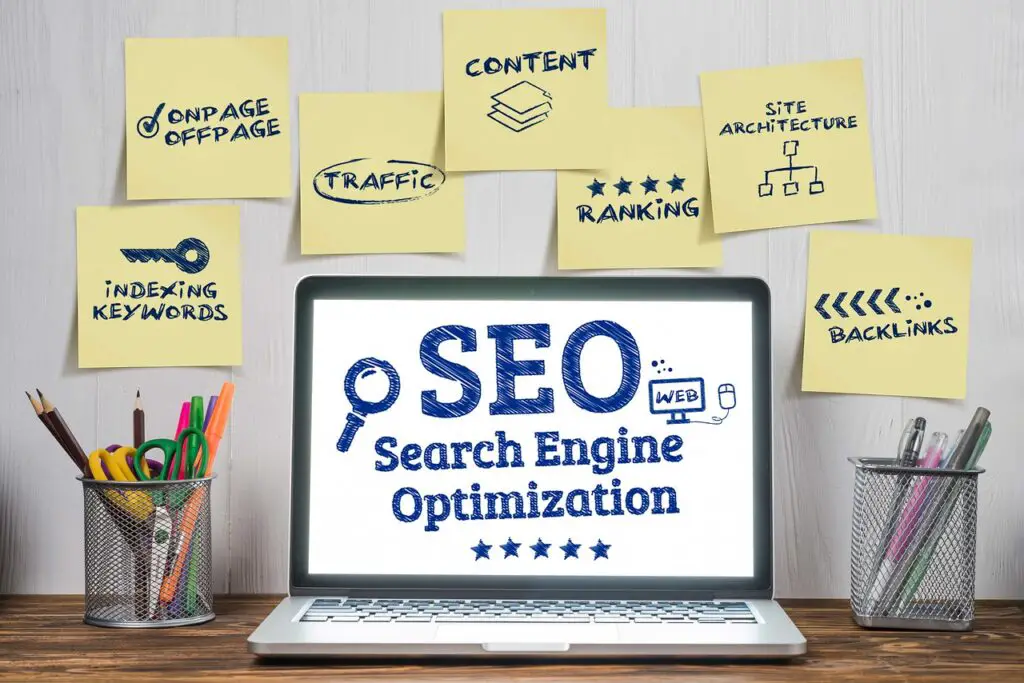I will not start with a clichéd statement about the ever-evolving environment of digital marketing. I’m sure you’re well aware of how challenging it is to catch up with SEO trends, especially with Google launching updates that make us rethink our strategies for the game. But since Search Engine Optimization (SEO) is still the key to highlighting online visibility and driving organic traffic, we must abide by any law sent our way.
Content is still the king, albeit the kingdom has changed drastically ever since AI-generated content came into existence. Interestingly, AI has taken a prime seat in the arena of written content as well as visual mediums. Google has started recognizing AI-generated images at par with real ones, but the devil is still in the details.
Now, some digital marketers might be happy with the “we’ll see what happens” mantra, but others intend to continue research and experimentation to understand the present and future face of SEO accurately. In this article, I’m going to talk about some of the recent SEO trends that have caught my eye and share what I can about them.
Google’s August 2023 Broad Core Update
Google’s August 2023 Broad Core update is fresh off the table, which started rolling out at 1:30 PM ET on August 22, 2023. Google announced that the update will take about two weeks to come into complete effect, so I think it is too early to talk about the results. I think it’s safe to say that most websites have not seen any real changes in their metrics so far, but I have a feeling that things are going to turn around real soon.
The first stage of this update began on March 15, 2023, and according to Google, the update focuses on prioritizing helpful and reliable content that has been created for people and not search engines. According to the update, Google’s algorithm will recognize high-quality information in content and rank it higher on the SERPs.
It means that digital marketers have to start taking proactive measures to monitor the search rankings of their websites, as the update might start penalizing low-quality content. Needless to say, we also have to ensure that we include up-to-date useful information in any content we publish. As for the real effects of the update, I guess we have no option but to wait and watch closely.
Organic Search Over Google Ads
There has been a noticeable decline in the revenue from Google and Bing ads since last year. There was a mere 4.25% increase in Google ads revenue in October 2022, whereas the previous reports showed an increase of 13.5%. The report published before that had shown a 22% increase in Google ads revenue. That shows a steady decline in ad revenue.
This probably means that companies are trying to reduce their costs of paid advertising, as marketing agencies have also seen a reduction in average listing costs. While the ongoing economic crisis of 2023 might be one-half of the problem, people have also started preferring organic search results instead of promotions. Maybe that’s why Google has changed the ‘Ad’ label to ‘Sponsored,’ as we can already see this implemented for searches on mobiles and computers.
Digital marketers can tackle this problem in two ways. They can either revise their advertising campaigns because some of the overpriced bids might have become more affordable. Google tools like Search Console can come in handy to monitor the progress and evaluate the site’s technical aspects.
But you know as well as I do that SEO doesn’t come in a size that fits all. SEO experts have to analyze business requirements before they develop the right strategy. According to Boosted Lab, there is a general misconception that SEO is merely a long-term approach to digital marketing without any short term benefits.
Don’t get them wrong; SEO is definitely a long-term game. However, some businesses might see better ROI if they invest more in PPC than SEO, which is why Boosted Lab recommends a thorough market analysis to evaluate the best and most cost-effective path for each business.
Google’s E-E-A-T Update
March 2023 also witnessed the expansion of E-A-T (Expertise, Authoritativeness, and Trust) with an additional E for Experience. This update emphasizes the importance of adding firsthand life experiences in content to rank them higher on SERPs.
The idea behind this update is that personal experiences are often more trustworthy and can fulfill the intended purpose of using search engines more effectively. After all, we always look for first-hand information or reviews when we search for anything on Google, right?
But this update does not just prioritize anyone’s experience. The experience has to be narrated by someone authoritative in the field so that a user receives information from a qualified individual.
That means the experience of an accounting expert would have more value than yours or mine when it comes to tax information. An accountant has the experience, expertise, and authority on the subject, so their content would be more trustworthy and desirable to a user.
Here are some tips for digital marketers concerning this update –
- Any real information on the website should be verified.
- The expert in the organization must be highlighted in the content concerning the services provided.
- Contact information must be highlighted.
- The website’s design should look professional and appropriate for the industry it serves.
- Marketers should publish authoritative content regularly on the website. (Content is still king, remember?)
- Promotional content like ads or offers should be limited or restricted.
- Keywords have taken a backseat, so it’s best not to rely on them while furnishing information.
AI Content: Boon or Curse
AI-generated content has been there for the last few years, but the game changed completely when ChatGPT was launched in November 2022. The language is almost human-like, and although the database is not updated beyond September 2021, it is quite efficient in generating useful information.
If you are an experienced digital marketer, I probably didn’t have to tell you that. But whether you consider it a boon or a curse is a different story altogether. I believe ChatGPT is not a tool to be used blindly but something that can be valuable if used intelligently.
Even though you might be tempted to sacrifice quality over quantity, remember that the first two Google updates we spoke about aim to identify and penalize low-quality, uninformative content.
As a digital marketer, you should also closely monitor the information produced by AI content-generating engines. The information must always be cross-checked, as the software might generate false facts occasionally. However, there is no doubt that the platform can provide information quickly, which is why many people prefer using it over Google these days.
I think the tool can be quite beneficial for content generation as long as it is used intelligently. Instead of relying completely on the software, digital marketers can use AI-generated content to supplement information gathered by thorough research. However, in the near future, such AI engines might be able to overcome the shortcomings and might have an even more profound effect on the SEO industry.
So there you have it, four latest trends that you should know if you’re in the field of SEO. Even though the scenario is quite unpredictable, we have to start prioritizing quality over quantity. That’s pretty much written on the wall. Also, AI algorithms are here to stay, so we must make the best of them without blindly trusting them. Let’s keep these details in mind while formulating our strategies, and I’m sure we will see our rankings improve.










0 Comments